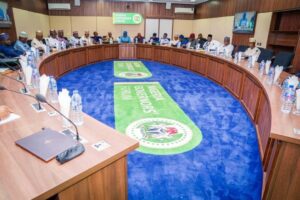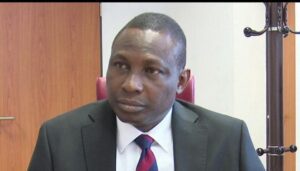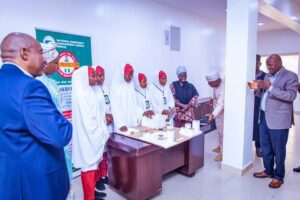
FG must strengthen measures to recover loots
Looting of Nigeria’s treasury has sapped the country to a state of deficiency where the long term effects have begun to reflect heavily with debilitating impacts. The country’s economy is deeply affected by a deficit of infrastructure with capital shortfalls. The funds needed to execute capital projects, among other critical interventions, have become scarce. The limitations in availability of funds have become so pronounced that saying the Government is now handicapped would be an understatement.
Sourcing funds has become a significant chorus to salvage the situation and rescue the country from the mire of economic strains which has dealt so hard on the masses.
As submissions continue to come up, another angle the government must seek to dive into is to begin to look into repatriation of looted funds stacked abroad. It is known that the value of stolen public funds stacked abroad in foreign accounts has been so far in alarming rate, that more unveiling of the links keep on surfacing.
The wild looting by former military dictator, Sani Abacha, has not left the shore of thoughts. Recovery of sums stacked in foreign accounts have over time continued to find some hopeful successes. While those of Abacha have been noised, it is pertinent to note that the occasion of such looting is not peculiar to Abacha. The network of stolen funds by Nigerian public officers, who over time have stolen public funds looted abroad, is a subject of wild concern.
Recently, a Royal Court in Jersey, United States, reportedly ruled that stolen assets worth £6.9 million ($8.9 million) be repatriated to Nigeria. The said assets were allegedly diverted by Nigerian government officials in 2014 under the guise of purchasing arms to fight Boko Haram terrorists.
According to BBC, the court ruled that the money, deposited in a Jersey bank account, was likely stolen by officials in the Nigerian Government in 2014. Controversies had surrounded the purchase of weapons in the fight against insurgency with the then National Security Adviser, Sambo Dasuki, who was accused of diverting funds meant for security equipment during Jonathan’s administration. Also in late 2014, a private jet was arrested in South Africa with $10 million cash, which was allegedly meant for the purchase of military weapons.
However, the order of the Royal Court in Jersey followed a forfeiture notice to the court by Jersey’s Attorney General, Mark Temple KC. The court held that the funds were deposited in a Jersey bank account and were not used for the arms purchase. Temple had said the Government of Jersey was in close partnership with Nigeria on the repatriation of the funds.
The AG had claimed part of the funds were shared with family members of politicians in the then-ruling Peoples Democratic Party ahead of the 2015 general election.
“This case again demonstrates the effectiveness of the 2018 Forfeiture Law in recovering the proceeds of corruption and restoring that money to victims of crime. I now intend to negotiate an asset return agreement with the Federal Republic of Nigeria,” he said.
It is pertinent for the Nigerian Government to institutionalise processes for a working system to track and repatriate public funds looted abroad over time. Such processes should be established and linked concertedly with connective patterns for strong processes of political, legal, technological, diplomatic and investigative, among other necessary mechanisms to build an effective system responsive to scouting and recovering looted funds back into the nation’s treasure.
Such funds, as they are being recovered and repatriated, should be deployed strategically to courses essential to revamping the economy from the verge of collapse. Recovering looted funds would form a plausible measure among the submissions readily deemed rational to save the day, amidst dwindling revenue which has seemingly handicapped the government in its efforts to rescue the nation from economic collapse.



